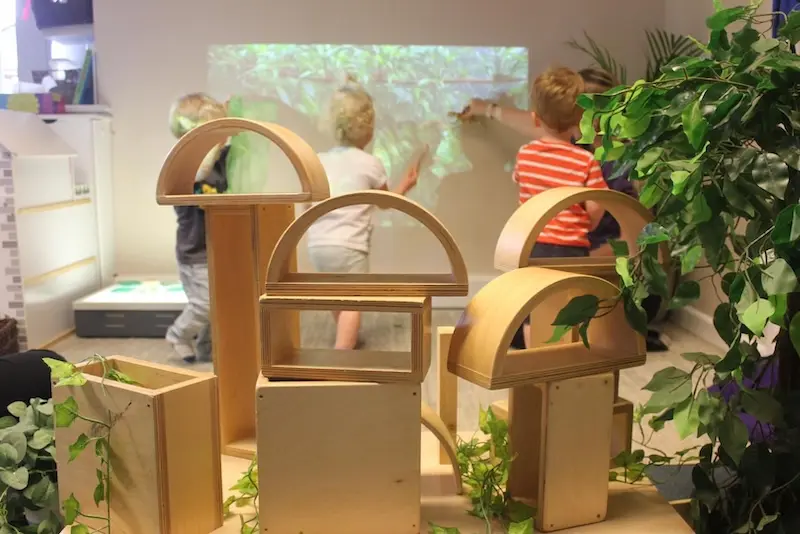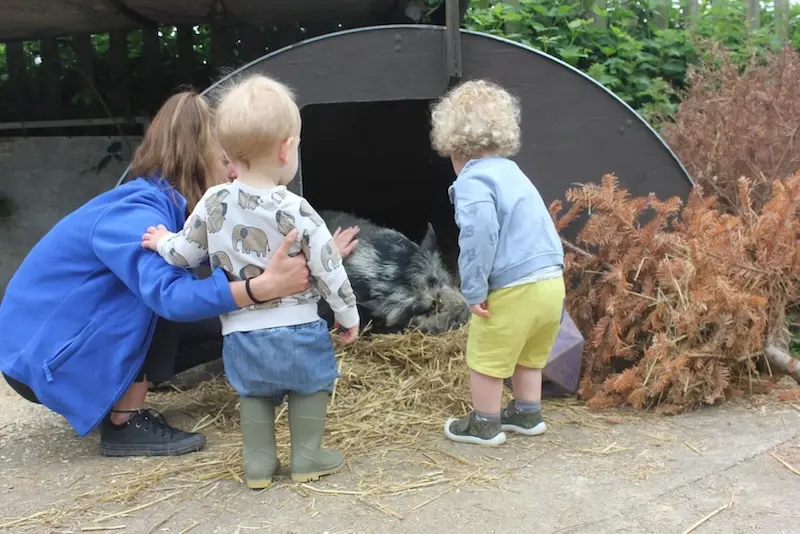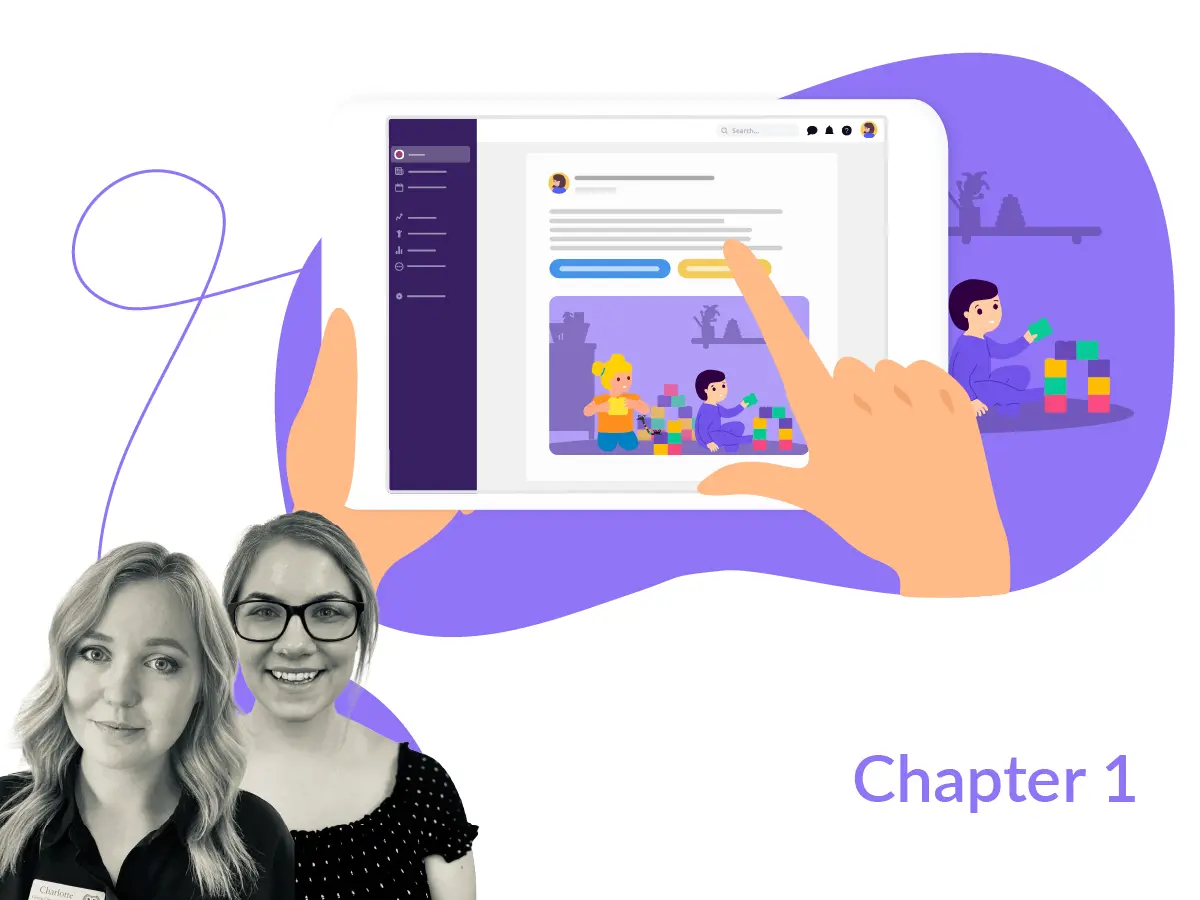settings
children
With Famly since
Change isn't always easy, even if it's for the right reasons.
A new EYFS is coming, and with it, we too are bringing about some bold changes to the way you observe and assess children in Famly. But these changes come with a lot of confusion and questions. How much documentation is too much? Should I change my assessments? What about next steps?
Luckily, help is at hand.
"We've been through change", explains Charlotte Bateman, the group operations officer at Little Barn Owls, a Horsham-based, farm and forest nursery group. "We've been through the barriers people worry about, made mistakes, tweaked, improved. We’ve gotten it wrong before we got it right, and we want to share what we've learned with other settings."
And now, Charlotte and her team are feeling ready for these new changes too. A history of 'outstanding' Ofsted reports, and their recent accolade of 'UK Nursery Group of the Year' tells part of the Little Barn Owls story, but it's the journey to get there that really demonstrates who they are.
We’ll walk you through Charlotte and Kerry’s advice for navigating change in general, and explore how they’re tackling this latest transition to the new EYFS.
But before we go in-depth, here’s a look at Charlotte’s top insights to help you manage the coming changes,
The big ideas
Little Barn Owls’ 5 tips to tackling the new EYFS:
- Engage parents.
Ensure you're sharing quality observations with parents, so they feel part of their child's adventures and learning. At the same time, make sure to interact with parent observations to encourage them and don’t forget to include them in your planning for children. - Don’t be afraid of documentation.
Just because the EYFS and Ofsted want to reduce paperwork, doesn't mean that useful and proportionate documentation is suddenly off the table. Practitioners are super-human in a lot of ways, but you're still allowed to write things down! - Plan to change your planning.
You might already have what you need to replace statement-based tracking - planning for children in the moment creates in-depth, extended learning experiences for the children and less paperwork for you. - Acknowledge progress.
Changes to assessment mean you can focus on children's real, individual achievements, not just ticking off the next box. Positive recognition of a child’s learning is beneficial for the child and has a positive effect for parents and practitioners too. - Embrace the change.
Change can be nerve-wracking, but it also presents a great opportunity to improve your practice. Create a plan for every member of staff and don't be shy about retraining skills and going back to basics.
1. Partnership with parents
- When sending photos and observations to parents, focus on quality over quantity. One good snapshot is more meaningful than a load of photos that don’t show much.
- Allow children to borrow resources from the setting so parents can confidently start observing at home.
- Always react to parents' posts and observations.
"Right from the first meeting, we tell parents 'We're in partnership' - it's one of our key values," says Charlotte.
At Little Barn Owls, they make at least one observation, per child, per day often in the form of group observations. Not only does this inform planning, and build a picture of the child’s development, but it’s a commitment to strengthen parent partnership with the setting. When parents come to collect their children, they already know what they've been up to at nursery, so they can greet their child and talk about what they've been doing straight away.
To support parents in getting started with communicating through Famly, Little Barn Owls send familiar resources home with children. Recently, Kerry tells me, the baby room children were sent home with treasure baskets that they play with at nursery, so parents have a jumping off point for observing at home. They found that the more their staff interact with parents' posts and observations, in Famly and in planning, the more inspired and confident other parents feel to contribute too, as they can see their effort is recognised.

2. Observations- Documentation isn't suddenly all bad
- Don't be afraid of doing meaningful documentation - like quality observations and proportionate assessment.
- Make use of supporting documents to aid great practice, such as curriculum guidance, or practice prompts.
The removal of statement-based tracking, and Ofsted’s shift away from looking at paperwork towards observing more real practice, are positive steps towards improving the sector. But you’re still allowed to write things down.
Here’s what Charlotte and her team think makes for meaningful documentation:
- Quality observations (at least one a day at Little Barn Owls)
- Proportionate assessment (Little Barn Owls do their summative assessment termly)
- Sharing achievements and learning with children and their parents, via a weekly document, posted to the News Feed in Famly.
Documentation can also support practitioners in the moment. Famly now has curriculum guidance, such as Birth to Five Matters and Development Matters, alongside observations and assessments. Now you can no longer link to individual statements, the guidance is "literally just what it was intended for - a supporting document - to support your practice,” Charlotte says.“You're using it to write your observation, not just tick a box.”
Another way Little Barn Owls keep practice consistently great, is by utilising laminated 'prompts', kept in an apron worn by educators, supporting them with emergent planning and extending children's learning. Charlotte and Kerry want to add these prompts to the reference material section in Famly - something which you’ll be able to do come September. "If we're able to have that on the same digital page as the actual observation, I think that could be really useful”, says Charlotte.

"I think this is a really great tool to enable more real high-quality interactions"
Charlotte
3. Planning & Curriculum - Plan to change your planning
- Daily, emergent, or ‘in-the-moment’ planning allows you to pursue children's interests instead of trying to move them on to the next step of a tick-list
- 'What's next?' is for practitioners to extend learning, not for what we think the child should learn next
- Plan in collaboration with the children
Without documenting at least some things, "you won't remember the real magic," says Charlotte. Charlotte and Kerry are thinking they’ll use the new ‘What’s next’ boxes to feed into their ‘sprint’ planning meetings, where the educators use their written observations from the day to plan what to provide for children tomorrow.
Charlotte explains that the point of reflecting on 'what's next' is to discover how to adapt the enabling environment, choose the resources to provide, and note what the key person's responsibilities are.However, it's too often interpreted as 'What can the child not do?'", or as a target for the child to reach.
During the children’s ‘Proposal Time’ each morning, Little Barn Owls educators explain what’s on offer in the setting (based on their sprint meeting the previous evening) and children plan their day themselves. “I think [the changes] will really get practitioners to find a way that fits for them, so they can move forward, away from a tick-box-based planning system.” says Charlotte

4. Acknowledge Progress
- Make sure you’re seeing assessment as an opportunity to support, and not judge, progress.
- Offer feedback for how colleagues can improve but don’t forget to identify (and celebrate) great practice - share what you want to see more of.
Little Barn Owls create termly assessments of their children, and use this time to audit their journeys for the 7 areas of learning. The new assessment builder in Famly inspired Charlotte and Kerry to think about how they can customise their assessments to the children and parents at their settings. Charlotte explains that it’s important for practitioners to be able flag an area of learning for extension or support, and communicate this with parents, without worrying them unduly.
“If anything comes up red, or amber, or anything that isn’t ‘exceeding’ or ‘on target’, it panics parents”. Charlotte says, “So it’s good that we can have our own terminology in there" (as well as their own choice of colours). Being able to tailor these options in assessments means that it will also still be possible to monitor by cohort, another way Little Barn Owls check in on progress.
Acknowledgement of progress can also be a great way to support practitioners in their practice. Often, Charlotte tells me, Little Barn Owls find that their educators aren’t “singing their teaching” enough. Through Famly, "We get to see a stream of how educators are understanding and articulating childrens' learning, and on a daily basis, we can give them feedback." Little Barn Owls makes sure to share with practitioners when their practice is amazing, ensuring they feel recognised and inspired to keep up the great work.
5. Embracing change - Be brave, and know WHY you're doing what you're doing
- Make a plan, with clear expectations and responsibilities for each member of your team
- Nail down your core ethos as a setting and audit your practice against this
- Work on, or re-train, the areas you're least confident in
The new EYFS framework admittedly doesn’t present a huge change for Little Barn Owls’ existing ways of working. But that's not to say they don't know the work that goes into change. Leaders must have conviction, and have the bravery to stick to what they've chosen to do.
More practically, it's a great idea to set out how each member of the team can contribute too, so that everyone feels like the changes belong to them.. To tackle changes, such as those outlined in the new EYFS framework, Charlotte advises:
- Begin with a group development plan - what you want to achieve, by when, why, and how.
- Next, recognise that there are different levels of responsibility and understanding- the needs and expectations of a setting manager are not the same as those of an apprentice.
- Set expectations and tasks for every member of staff, whenever there's a change to existing practice, so everyone is completely sure of their part of the plan and gets to feel some ownership of the change.
Little Barn Owls speak with confidence in their practice, but how can other settings inspire such confidence, especially when practitioners might be feeling uncertain about changes to the EYFS? "You've got to know why you're doing what you're doing" says Charlotte, "Why have we chosen to be who we are and do what we do?". The 'why' informs every part of your practice, so "figure out your values, your ethos- ask 'what is it we're trying to do here?'". Once you've got that, you can audit every part of your practice to ensure it reflects it.
Little Barn Owls are confident in their knowledge of the children in their care, but articulating how children are developing, without the ‘comfort blanket’ of statement-based tracking, can be daunting for any setting. "It's not just about knowing your key children, it's about being able to articulate that too,” explains Charlotte, “you have to be able to say it out loud”. As with any element of your practice you want to work on, the key is putting the time in. Recently, Little Barn Owls focussed their Continuous Professional Development day on articulating their knowledge of children for exactly this reason, using role playto practice articulating their knowledge of children in a safe space.

So, how would Little Barn Owls sum up the changes in Famly?
"It's really simple" says Charlotte "We didn't know what the changes in Famly were going to look like...but it just looks like what it is. No more statement-based tracking"
While a lot goes on behind the scenes to make changes to Famly, Charlotte is essentially right. Charlotte and Kerry are brimming with ideas about how to customise the new assessments, add their own reference material, and utilise the 'What's next' box in observations, which is exactly what we're hoping for - settings using Famly as a tool to support their unique great practice, in the way that best suits them.

"It's really simple" says Charlotte "We didn't know what the changes in Famly were going to look like..but it just looks like what it is, no more statement-based tracking"
Charlotte
Try learning journals for free
Add observations, and build digital learning journals to share with families instantly. All with your completely free 14-day trial.
Get started









